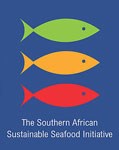Local chefs who are hungry for change have joined a new WWF-SASSI campaign to encourage consumers to be more aware of what seafood they are buying and eating.
Brad Ball, Vanessa Marx and Stefan Marais are among the local culinary kingpins who will work with WWF-SASSI throughout November to raise awareness around dwindling fish stocks and encourage consumers to exercise green choices when it comes to seafood.
WWF-Southern African Sustainable Seafood Initiative (SASSI) seeks to provide consumers with easy-to-use tools to help them make sustainable choices when it comes to buying seafood. "As a chef, I believe I have a responsibility to educate restaurant diners in selecting produce that is sustainable. Future generations should have the opportunity to enjoy the amazing fish that I have had the pleasure of eating and cooking," says Brad Ball, chef at Bistro 1682.
Linefish are overexploited
The manager of the WWF-SASSI initiative, Janine Basson, says the campaign was launched in response to the state of local fisheries and that the need to protect these remains high. "Almost 80% of key South African linefish species are overexploited or their populations have collapsed. Some household favourites such as Cape salmon/geelbek have collapsed, and kob/kabeljou is at less than 20% of its pre-fished populations. We knew we had to act immediately to galvanise the public into helping us make the right decisions. The health of many of our coastal communities is inextricably linked to the health of our marine resources," she added.
WWF-SASSI has developed an easy-to-use fish list based on a traffic light system: green - best choice from the most sustainable and responsibly managed fisheries; orange - think twice because there are some concerns either relating to the stock status or the fishing method/management of the fishery; and red - avoid completely/don't buy because it comes from an unsustainable source.
Consumers are able to SMS their fish choice to a dedicated hotline and receive a swift response letting them know how it rates. There is also an app for Blackberry phones that consumers can download for free from Blackberry App World.
Switch from favourites
"Using these tools, consumers can find out instantly if their purchase is sustainable or not. This empowers them to use their buying power to shift demand away from overexploited species towards sustainable options, and use their voice to communicate to restaurants and retailers the importance of seafood sustainability in their procurement practises," says Basson.
"There is no reason why people cannot switch from old family favourite recipes using overfished seafood to new, more environmentally friendly options," says Vanessa Marx, head chef at Dear Me restaurant, located in Cape Town. "All it takes is some creativity and curiosity."
"Our partnerships with chefs are inspired by a love of seafood and a shared commitment to help restore our overexploited seafood species," says Basson. "Chefs play a critical role in influencing popular taste. Through diversifying their use of seafood species, chefs not only expand their customer's palates but can also influence which fish are sought by suppliers and demanded by consumers. Chefs who support and promote ocean-friendly seafood can help ensure that there are fish to catch and enjoy tomorrow and help ensure the health of our oceans for the future."




































